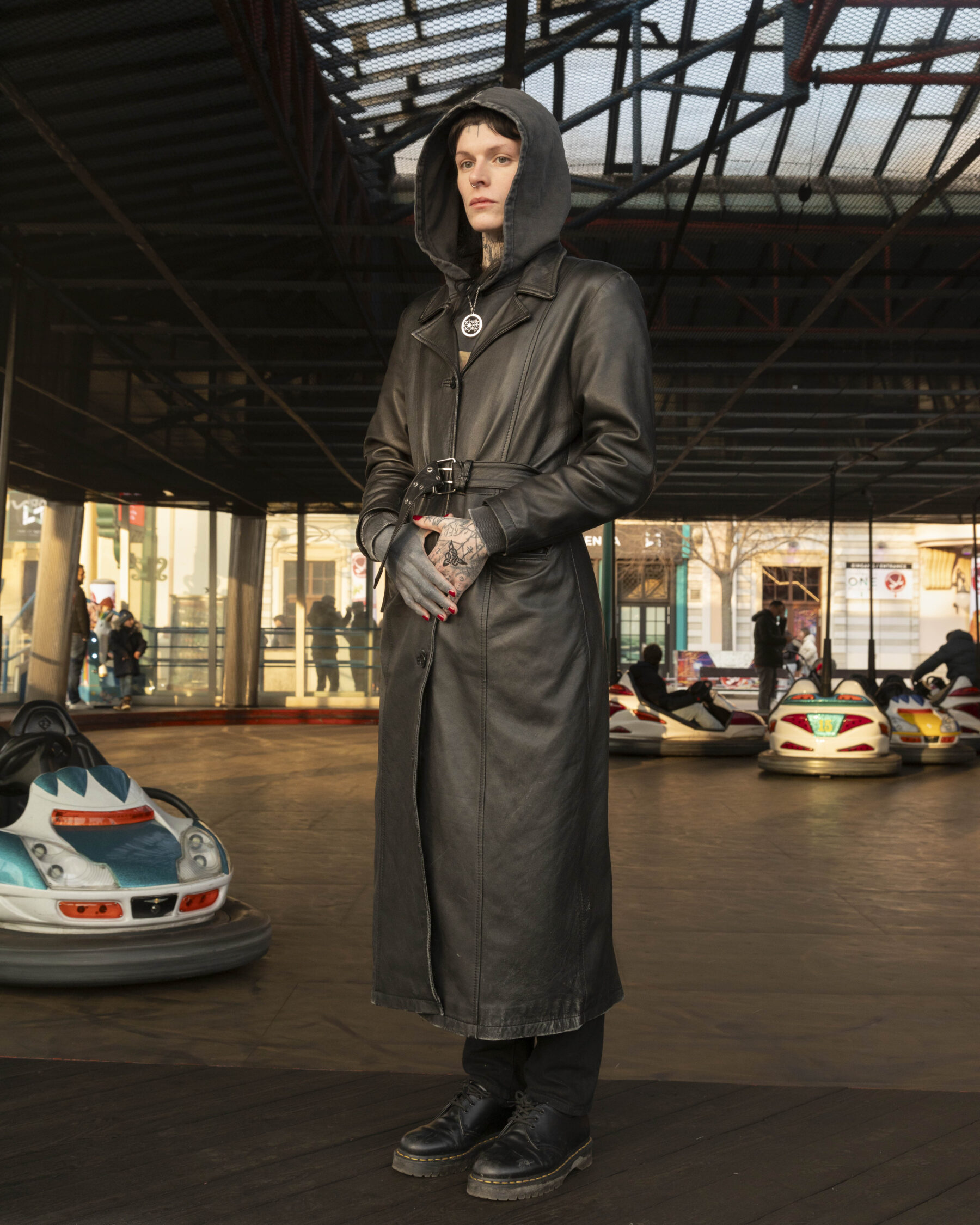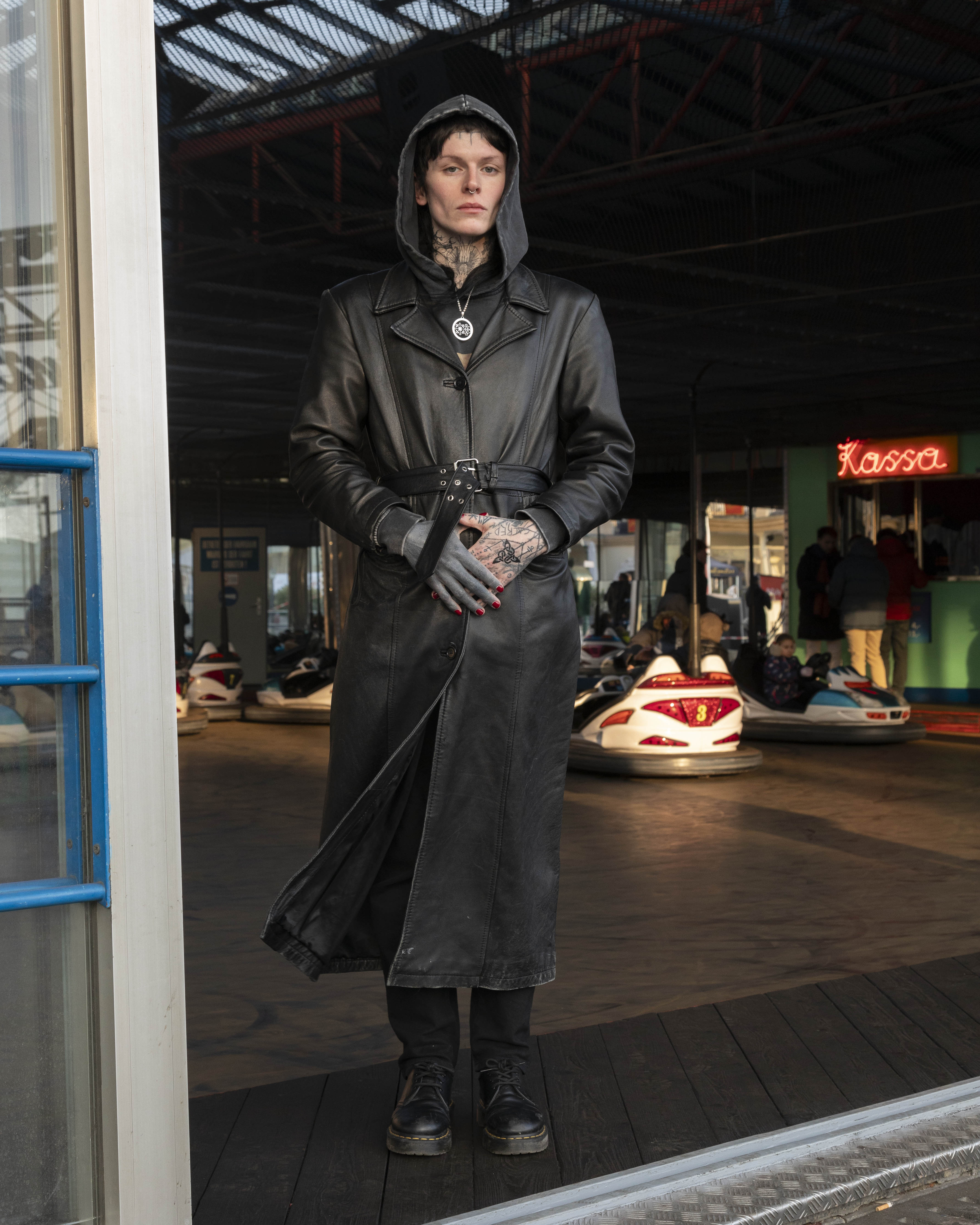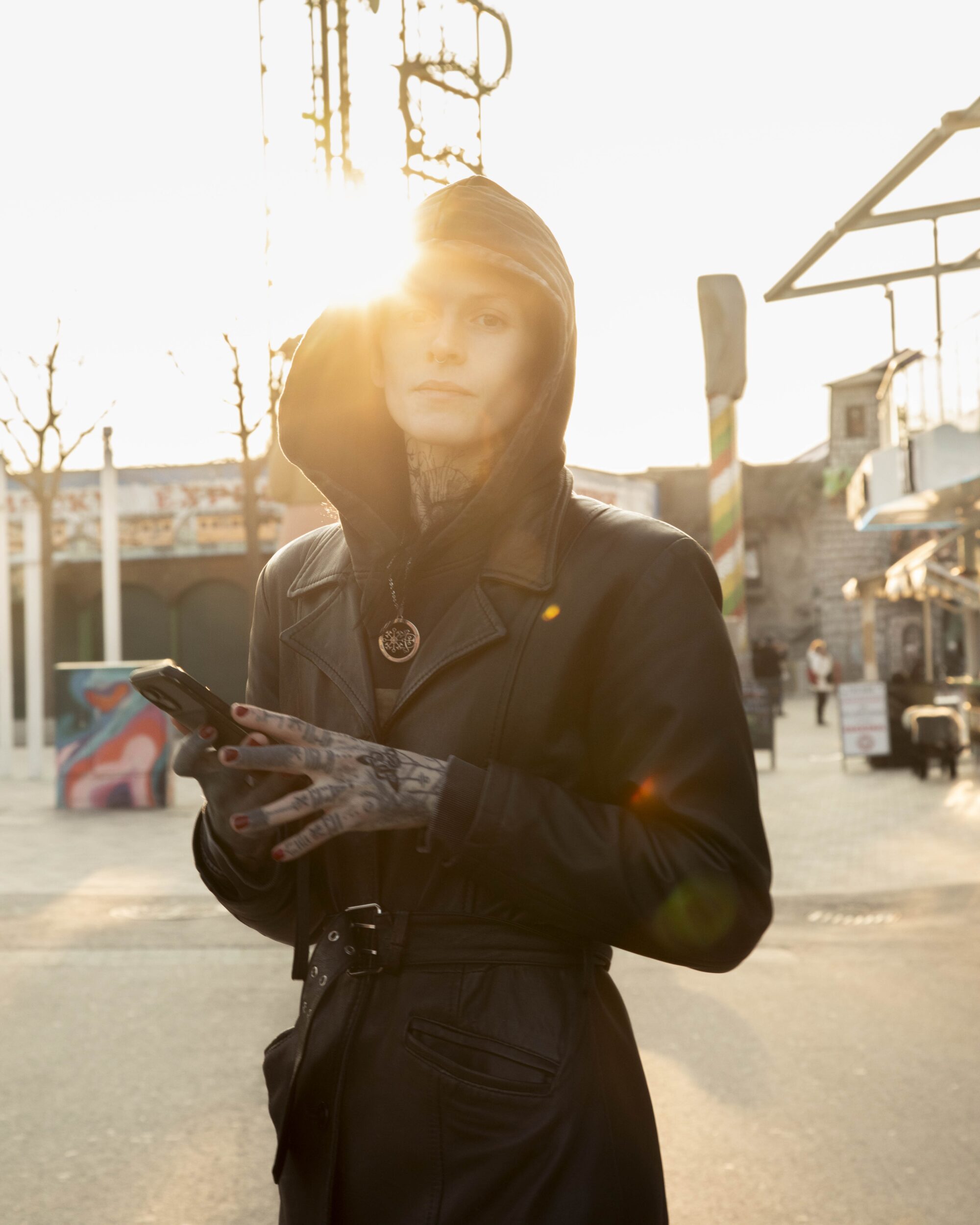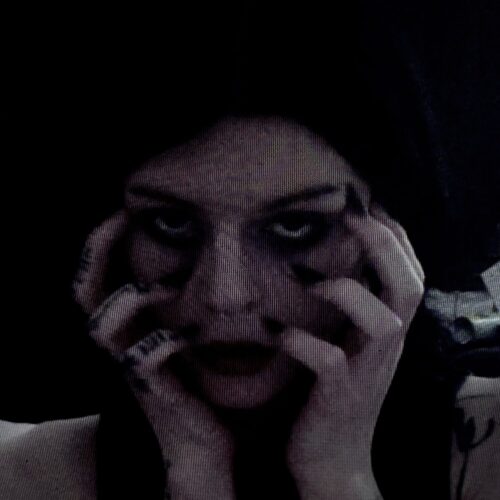“EVERYTHING FEELS STRANGE” — AN INTERVIEW WITH KAVARI

Hey KAVARI, we are excited to welcome you soon in Vienna for Struma+Iodine’s 12th birthday. I think it’s fair to say that you got a committed following here. Regularly I can hear people playing your tracks in DJ-sets and when the lineup for this event got released one could sense excitement that you’ll come to town. Do you have any existing connections to or associations with Vienna and how do you feel about the show?
I’m really excited to visit Vienna. It’s my first time. I’ve read about its history with the Knights Templar and Blutgasse (Blood Lane), which I hope to visit briefly while I’m there, as I love macabre history. Beyond that, I’m just looking forward to experiencing the city and its scene—it seems so beautiful.
How do you feel about touring in general? And can you share some (recent) experiences around it?
I love it. I’m incredibly thankful to have the chance to visit so many places, immerse myself in various cultures, meet new people, and explore their music scenes. But it is exhausting on the body. Most people don’t realize that for a one-hour performance, I’ve likely spent an entire day traveling. Looking after myself throughout this process is something I’m learning to prioritize.
When there was the buzz around Aphex Twin playing your music, I remember you tweeting that even though you’re getting all this attention, you are still broke and that the concept of success in the music industry is warped—which I agree with. What does success mean to you personally?
When all the Aphex Twin stuff happened, I was in a very unstable place—surviving but not living. I think society views success as being a multimillionaire with international fame but that’s not my vision. True success is living comfortably, healthy, pursuing your passion, and feeling happy and content with what you’ve created. Success to me isn’t about fame, power, or massive wealth; it’s simply being able to live comfortably through my art. That’s all I’ve ever wanted, and I think it’s something many people can relate to. I’m in a much better place now, especially as my clothing line has been so successful.
Obviously, there’s been, rightfully so, a lot of discourse on Spotify exploiting artists. Do you see any sustainable alternatives to build a career and how do you go about it yourself?
Spotify feels unclean—an extension of what capitalism has done to music consumption. Beyond platforms like Bandcamp and directly supporting artists by buying music and their work, I don’t know how we change this. I personally use Spotify as a tool for exposure but it’s not where the value of music lies.

“Whether “mainstream” or “underground,” all feel this shared pressure online”
It seems to me that you are really dedicated to your craft and the volume of your output is certainly high—ranging from not only your own music but collaborations, visual art, clothing designs as well as curating and self-releasing compilations—yet the quality is never compromised. How do you do that?
Creation is my passion—it’s my therapy. It’s how I process emotions, and without it, I start to feel unbalanced. Whether it’s music, painting, clothes, video editing, or photography, I need to create. I like having control over my art and being able to execute exactly what I envision, which is why I prefer self-releasing and don’t collaborate much.
Your online presence is something that has been mentioned in interviews before and you seem to be aware of that. In your Gay Times interview it said that you tweeted, “People mentioning my Twitter in real life is like a jumpscare.” You are a sincerely outspoken person online and don’t hesitate to also comment on political issues. How do you see social media platforms and artists’ relationships to them developing, when there’s now more and more discussion around leaving these platforms after their owners completely genuflected to far right discourses and politicians?
My online presence has definitely shifted over time. I avoid Twitter (X) more now because it feels so polluted with toxicity. I was more active on it back then because I was honestly just bored. I only log in on my laptop to share music and pictures now. I stick to Tumblr and Instagram because I feel I communicate better through my work than through words. Being mildly dyslexic, it’s difficult for me to express myself in words exactly. Me and my artist friends, whether “mainstream” or “underground,” all feel this shared pressure online—being pushed out by algorithms that only favour specific trends, forcing us to pay for visibility or making us give in to “content creation”. On top of that, parasocial behavior and harassment are so common. Everything feels strange.
An issue you’ve been outspoken about as well is trans politics. Understandably you’ve expressed discontent about people comparing you and your music to SOPHIE or Arca, just because you are a trans woman in electronic music. I feel like there’s a pattern with people doing this. London-based artist su i think recently spoke about this dynamic on her podcast as well, since she’s been compared to Ethel Cain (which is super farfetched in my opinion). Her explanation was that people have a limited knowledge of what a trans person is. Saying that “you can either be blonde to be called Hunter Schafer or Alex Consani or you can have mousy dirty blonde hair, no eyebrows and get called Ethel Cain”. I find this pattern quite dehumanizing and dismissive of our own works and individual existences and a symptom of performative politics of representation that mostly centre whiteness, skinniness and abled bodies.
Are these comparisons something you wrestle with, or has it become easy for you to give them the cold shoulder? And how do you feel about the question of trans representation and visibility?
Personally, it doesn’t bother me too much. Although the SOPHIE/Arca comparisons used to, because of how repetitive they were, they don’t really anymore. Hayden (Ethel Cain) and I get compared almost daily in terms of looks, and while it’s repetitive, we do take it as a compliment. We do look quite similar, and as trans women with similar aesthetics, it’s bound to happen. But I think it reflects the lack of trans representation overall. The public can only engage with what they’ve been shown, which often isn’t much. They only know the taste of what they’ve been fed. Hopefully, this changes as people educate themselves. The obsession with white and skinny “beauty” standards is a societal sickness—an unfortunate byproduct of western ideals.
Regardless, it is safe to say that—specifically Black—trans artists now and always played a significant role in (electronic) music. Would you say your output, your world building is informed by your transness?
Black trans women paved the way for all of us in countless ways. They’ve opened doors, sacrificed, and martyred themselves for the freedoms we now have. I don’t think we can ever repay that debt but we can honour their legacy and keep them in our memories. Being trans doesn’t directly influence my work, and my work isn’t about being trans—it’s coincidentally just a part of who I am. There are trans artists out there creating more profound work about their experiences. I’m happy simply to contribute in my own way by existing and creating.
“I enter a trance-like state, channeling emotion directly from my soul.”

A lot of your work is exploring dark and emotional places. On Bandcamp you describe your latest project Laudanum as “music for twisted souls and chaos”. Are these emotions something that you specifically try to channel within your art? If yes, how do you transfer them into Ableton? Do you see these themes ever changing?
When I make art, I try not to think. I enter a trance-like state, channeling emotion directly from my soul. It’s a spiritual process for me, and I let others interpret it however they feel—it’s not something I feel the need to over-explain. What others think of my work is their own business. I’ll answer questions about it if I’m asked though.
What is coming up for you in 2025—anything you can already give us some insights on?
I have a new EP coming out hopefully this year with a fantastic well known independent UK record label, be prepared, a Laudanum remix album is coming, and my clothing line is becoming more of a focus. I’m working on more collaborations with friends, preparing for a DJ residency in Europe (though I’m keeping details quiet for now), and generally aiming for just more art, more evolution, and more of myself in everything I do.
Thank You!


Kavari

This article is brought to you by Struma+Iodine as part of the EM GUIDE project – an initiative dedicated to empowering independent music magazines and strengthen the underground music scene in Europe. Read more about the project at emgui.de
Funded by the European Union. Views and opinions expressed are however those of the author(s) only and do not necessarily reflect those of the European Union or the European Education and Culture Executive Agency (EACEA). Neither the European Union nor EACEA can be held responsible for them.